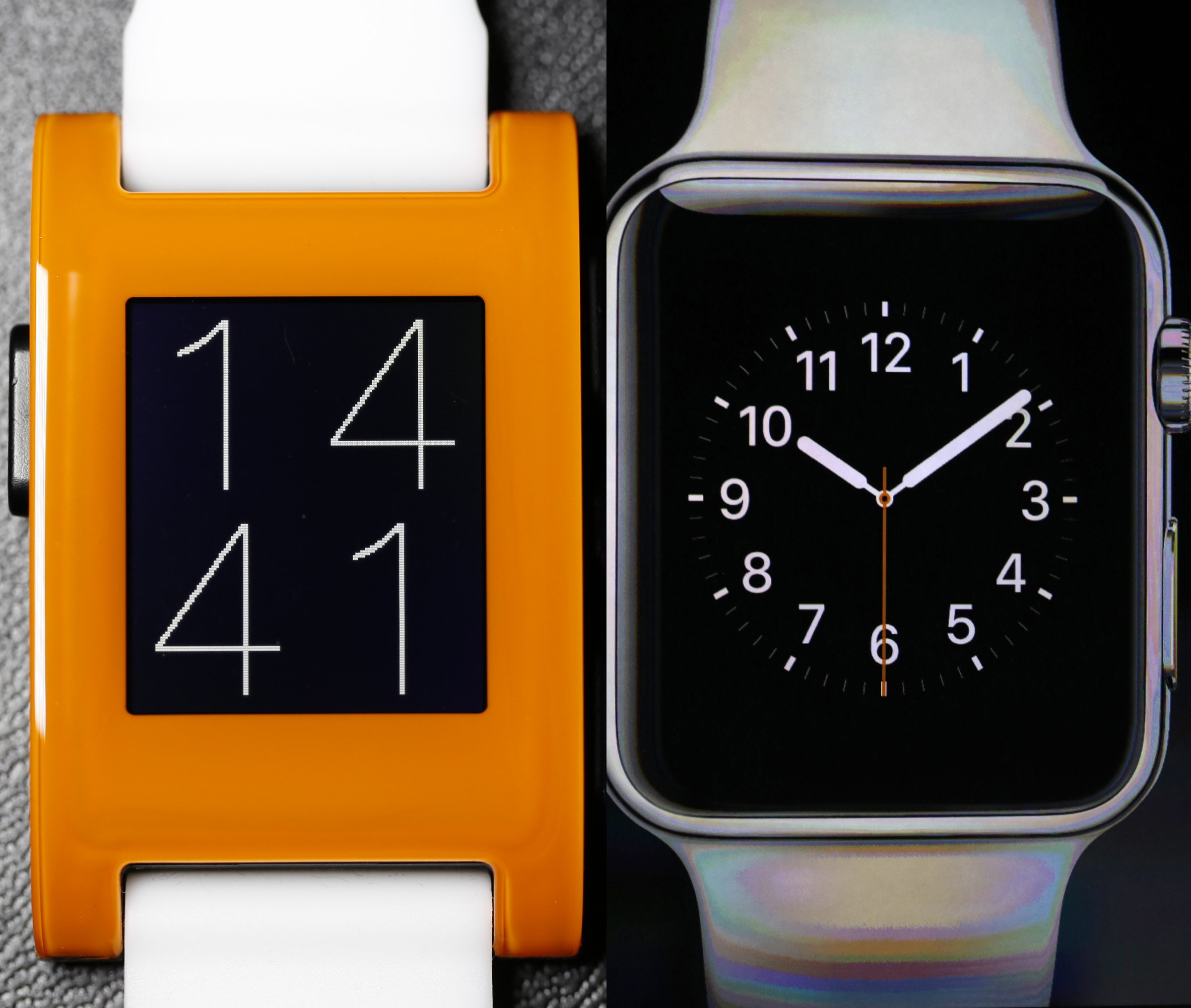
The wearables market is technology’s latest battleground with small upstarts like Pebble and Omate, as well as early entrances from big players like LG, Samsung, and Google. Today, with their announcement of the Apple Watch, Tim Cook officially entered the race and upped the ante with Apple Pay. With Apple in the game, can a young, upstart company like Pebble, maker of the popular Pebble Steel smart watch, go the distance? Or will the small players with early leads get trampled?
In the technology world, the winners are rarely those with the best product, but rather those who have created the most ubiquitous platform. However, established companies that offer the advantage of experience often operate from a defender mentality – protecting their market leadership and brand. Small companies like Pebble offer a challenger mindset. Less tethered to existing platforms, they are free to push boundaries and explore new possibilities.
Consider the differences in how newcomers vs. veterans tend to think and act. I studied over 400 workplace scenarios inside corporations, comparing how inexperienced versus experienced professionals approach a particular type of work. My research shows that being a rookie – facing a new problem or a challenge for the first time – can provoke top performance. In knowledge work, rookies often outperform experienced players, particularly in the realm of innovation and speed.
Rookies tend to be unencumbered, with no resources to burden them and no track record to limit their thinking or aspirations. Because they face a daunting challenge, a desperation-based learning kicks in, causing them to work both hungry and smart. They reach out seeking guidance and feedback. They operate in lean, agile cycles and learn through experimentation and improvisation. While veteran players are pacing themselves for a marathon—rookies are sprinting.
Pebble CEO, Eric Migicovsky exemplifies much of this mentality that I call “rookie smarts.” When venture funding fell short of their need in 2012, he launched a Kickstarter campaign securing a record-breaking $10-million in crowdfunded cash. Migicovsky quickly ventured out of his native Ontario to scout for talent and build a network of advisors across Silicon Valley. When the company faltered from an early bet on the Blackberry platform, he quickly course-corrected and rebuilt the device to pair with Android and iPhone handsets. Through scrappy, fast, but smart action, Pebble boasts over 400,000 users.
Rookies can certainly outperform the incumbents, but they can also flame out fast or fail to marshal the resources needed to sustain victory in the long haul.
Newcomers like Pebble have several options:
With today’s announcement, it is tempting to assume Apple will repeat its winning streak and will dominate not only the e-payment market but also the wearable technology market that allows users even greater ease and visibility to these transactions. But it’s too early in the race to dismiss the challengers. If companies like Pebble are in it for the long haul, they will need to do more than just think like rookies and sprint for 26.2 miles. To win big, they need to draw on the strength of the peloton and pair their capability with the power, savvy, and resources of industry veterans – those who are defining the rules. The challengers may stand ready to change the world, but they will need the help of those who know how this world works.
Liz Wiseman is the author of Rookie Smarts: Why Learning Beats Knowing in the New Game of Work and is a former executive at Oracle Corporation.
More Must-Reads from TIME
- Why Trump’s Message Worked on Latino Men
- What Trump’s Win Could Mean for Housing
- The 100 Must-Read Books of 2024
- Sleep Doctors Share the 1 Tip That’s Changed Their Lives
- Column: Let’s Bring Back Romance
- What It’s Like to Have Long COVID As a Kid
- FX’s Say Nothing Is the Must-Watch Political Thriller of 2024
- Merle Bombardieri Is Helping People Make the Baby Decision
Contact us at letters@time.com